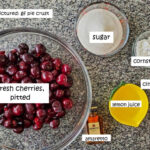Often perceived as a classic blues lament, the song “You’re No Good” carries a fascinating history, particularly when considering Bob Dylan’s rendition. It’s a common assumption that Dylan unearthed and revitalized an old blues standard, but the reality is more nuanced. Dylan was actually the first artist to record and release “You’re No Good,” having learned it directly from its creator, the multi-instrumentalist Jesse Fuller.
In 1959, a young Bob Dylan witnessed Jesse Fuller perform at the Exodus coffee club in Denver. This encounter proved pivotal, as Dylan absorbed “You’re No Good” directly from Fuller. It’s also speculated that Ramblin’ Jack Elliot, another influential figure in folk and blues, might have played a role in Dylan’s exposure to the song. Dylan’s interpretation, however, wasn’t a mere copy. He injected a faster tempo and introduced subtle lyrical alterations, along with a slightly different title compared to Fuller’s original conception.
Interestingly, Jesse Fuller’s own album featuring “You’re No Good” wasn’t released until over a year after Dylan’s recording. Listening to Fuller’s version reveals a dynamic performance where the tempo gradually increases, ending at a noticeably faster pace than where it began. This tempo shift in Fuller’s rendition might be unintentional, a common occurrence in live performances where maintaining a consistent beat can be challenging. However, it also adds a unique, organic feel to Fuller’s delivery. It raises the question of whether this tempo variation was a deliberate aspect of Fuller’s performance, and if Dylan consciously adopted a consistently faster pace from the outset for his version.
The song’s journey didn’t end with Dylan and Fuller. In 1964, Donovan, often dubbed the “English Dylan,” recorded his take on the song, eventually releasing it in 2004. Donovan’s version reverts to the original title, “Crazy ‘Bout a Woman,” and utilizes Fuller’s original lyrics. This recording showcases Donovan’s early talent, offering a respectful nod to the song’s folk and blues roots, even if his broader career trajectory leaned towards a different style of popular music.
More recently, The Graveltones, a modern duo, presented two strikingly different interpretations of “You’re No Good.” Their 2013 version from the “Don’t Wait Down” album takes a radical departure, transforming the song into a hard-rocking, almost unrecognizable rendition. While the lyrics remain, the musical arrangement is completely reimagined, demonstrating the song’s adaptability across genres, even if it might not appeal to purists seeking a traditional blues or folk sound.
In contrast, The Graveltones’ 2014 “Cardinal Sessions” performance offers a compelling acoustic reimagining. This version highlights the duo’s versatility, stripping the song down to its core elements with acoustic guitar and nuanced percussion. This rendition provides a fresh perspective, emphasizing the song’s inherent musicality and lyrical strength in a more intimate setting, proving that “You’re No Good” can resonate in diverse musical landscapes.
From its origins with Jesse Fuller to Bob Dylan’s influential recording and subsequent interpretations by artists like Donovan and The Graveltones, “You’re No Good” has proven to be a song with remarkable staying power and adaptability. Its journey highlights the fascinating evolution of a song as it passes through different artists and musical styles, each leaving their unique mark on its enduring legacy.

